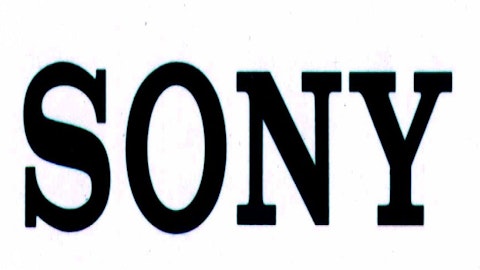Japan’s Nikkei stock index walked straight into a steamroller this week, falling a painful 5.9% over the past five days. The Nikkei’s performed exceptionally well this year as Japan’s become one of the world’s hottest growth stories, shedding years of stagnation in the process. Despite the optimism, however, questions linger over just how well Japan’s stimulus-fueled comeback is working.

All eyes on the yen
The yen’s pullback from multi-week highs against the U.S. dollar helped drive some of the week’s losses. Yet just like the U.S. markets, the Nikkei’s not immune to rampant speculation over the future of America’s quantitative easing. Fears that the Federal Reserve could taper stimulus spending soon sent Japanese stocks plunging on Wednesday, despite Japan’s own stimulus working spectacularly over the course of 2013 with no end in sight.
Keep an eye on the yen more than what happens in the U.S. American stimulus will have to end eventually, and while Wall Street’s worries will spread across the Pacific, currency issues are what will impact stocks and firms’ bottom lines. Numerous Japanese exporters are counting on the weak yen to drive up profits from overseas sales, and if the yen continues falling against the dollar and other currencies over the rest of the year, it’ll mean big things for Japan’s top companies.
An even bigger threat’s looming across the Pacific, however. Japan’s public debt has become one of the world’s largest burdens at more than twice the size of its GDP. The debt exceeded one quadrillion yen on Friday by jumping another 1.2% in the second quarter. That’s an unsustainable increase that Japan will have to deal with eventually, and unfortunately, few in the country’s government have answers.
Some economists have turned toward a sales tax to help take the pressure off the country’s ballooning debt. The Bank of Japan’s governor, Haruhiko Kurudo, supports the endeavor, but such a tax might very well hurt prime minister Shinzo Abe’s ambitions for economic growth by impacting consumers’ pocketbooks.
For top Japanese firms, problems over the debt and any sales tax aren’t immediate concerns. For companies struggling, however, every problem is one more they can’t take. Electronics maker Canon Inc. (ADR) (NYSE:CAJ) has been hit hard, as the camera market has given way to the smartphone revolution, and things are only looking worse. Research firm IDC projects that the digital camera market will slow 29% worldwide next year, a big blow to Canon Inc. (ADR) (NYSE:CAJ)’s hopes, as its stock has plunged nearly 20% year to date. Canon Inc. (ADR) (NYSE:CAJ) is one firm that can’t be helped by the country’s stimulus hopes.
Rival Nikon showed this week just how bad it’s getting for Japan’s troubled electronics firms. Nikon’s first-quarter profit fell 72% year over year, and the firm slashed its full-year profit forecast. Panasonic is facing trouble of its own, even as the firm’s stock has soared more than 45% year to date. The company announced its departure from the smartphone market this week, as foreign rivals have come to take the lead in Japan’s mobile sector. Panasonic’s failed to gain any mobile traction overseas, although considering the company’s smartphone division posted a 5.4 billion operating loss in the first quarter of the year, the move’s a smart surrender by Panasonic. Still, this capitulation won’t keep its stock soaring at the rate investors have become used to in the year’s first half.
The article Japan’s Public Debt Hits 1 Quadrillion Yen as the Nikkei Takes a Dive originally appeared on Fool.com and is written by Dan Carroll.
Fool contributor Dan Carroll has no position in any stocks mentioned. The Motley Fool has no position in any of the stocks mentioned.
Copyright © 1995 – 2013 The Motley Fool, LLC. All rights reserved. The Motley Fool has a disclosure policy.




